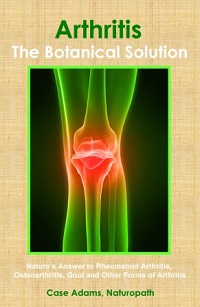Deep Breathing Reduces Free Radicals and Oxidative Stress
Deep breathing from the diaphragm can significantly reduce oxidative stress and help the body relax according to scientific research. This means that deep breathing reduces free radicals within the body. Deep breathing also boosts our body’s antioxidant levels according to researchers.
In this article
Deep breathing studied in cyclists
In a 2011 study, medical researchers from Italy’s University of Camerino found that diaphragmatic breathing – breathing from the diaphragm – reduces oxidative stress, and helps normalize insulin and blood sugar levels.
The researchers tested sixteen amateur cyclists, eight of which used diaphragmatic breathing in a quiet place after a meal, and eight of which sat in a quiet place reading a magazine after the same meal.
Blood samples were taken and tested before the meal, one hour after the meal and two hours after the meal. The researchers analyzed blood levels of reactive oxygen metabolites, glucose, insulin, and antioxidant potentials. They also measured the subjects’ heart rates.
The group who conducted the diaphragmic breathing had significantly lower heart rates. Their blood had higher insulin levels, and more normal levels of blood sugar. They also had lower levels of free radicals and higher antioxidant levels.
Oxidative stress has been linked to a variety of disorders, including diabetes, cardiovascular disease, dementia and many others. During oxidative stress, free radicals can damage the body’s internal tissues.
The researchers concluded that, “Diaphragmatic breathing, likely through the activation of the parasympathetic nervous system, increases insulin, reduces glycemia, and reduces reactive oxygen species production.”
Breathing exercises treat lung disease
Researchers from Turkey’s Kirklareli University Medical College found that nurse-led breathing exercises in the home are significantly more effective for COPD patients with stage 3 or 4 chronic obstructive pulmonary disease (COPD) compared with standard medical care for COPD.
This means that breathing exercises worked better than drugs.

Lung disease also treated with breathing exercises
The researchers studied 32 patients, half of which recieved education and nurse-led exercises in the home, and the other half received standard medical care. The rehabilitation exercises consisted of various breathing exercises along with aerobic exercise.
After three months on the program, both groups were tested for pulmonary function, FEV1, functional breathing capacity, artery blood gas levels, dyspnea and quality of life. The breathing exercise group tested significantly higher than at the beginning of the three months on all tests, while the control group had no improvement.
The study was published in Rehabilitation Nursing, the official journal of the Association of Rehabilitation Nurses.
The researchers concluded that:
“The study showed that the nurse-led, home-based pulmonary rehabilitation program had positive effects on the patients with COPD.”
Many other studies have shown that breathing exercises can significantly improve symptoms and prognosis for lung conditions.
Breathing exercises don’t have to be nurse-led. With the right direction we can learn to practice breathing exercises on our own. We can practice at home or work. Breathing exercises will increase our alertness, increase our focus, and stimulate detoxification throughout the body. Breathing exercises will also help us relax and think more clearly.
Deep breathing in other research
Other research has found that meditation reduces glycemia levels and reduces oxidative stress. The central component of this type of meditation, however, has been focused upon deep breathing. This research illustrates that it is likely the deep breathing, rather than the “meditation” itself.
Other studies have shown that intestinal irritability and other digestive issues are positively affected by deep breathing methods.
For example, researchers from University of Memphis reviewed multiple studies on patients with type 2 diabetes. They found that increased exercise, which is accompanied by deep breathing, reduces oxidative stress in patients with type 2 diabetes. The exercise also helped balance the patients’ blood sugar levels. The researchers concluded that, “exercise may be viewed as “medicine” for individuals who are at increased risk for postprandial oxidative stress.”
Learn more about the health benefits of deep breathing and how to diaphragmatic breathe:
References
Martarelli D, Cocchioni M, Scuri S, Pompei P. Diaphragmatic breathing reduces postprandial oxidative stress. J Altern Complement Med. 2011 Jul;17(7):623-8.
Tucker PS, Fisher-Wellman K, Bloomer RJ. Can exercise minimize postprandial oxidative stress in patients with type 2 diabetes? Curr Diabetes Rev. 2008 Nov;4(4):309-19.
Akinci AC, Olgun N. The effectiveness of nurse-led, home-based pulmonary rehabilitation in patients with COPD in Turkey. Rehabil Nurs. 2011 Jul-Aug;36(4):159-65.


















